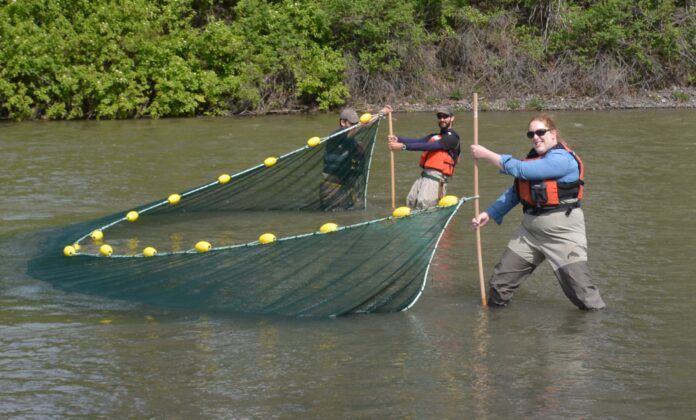A new wild salmon study has researchers concerned the fish are having trouble adapting to changing oceans.
Research by Simon Fraser University scientists published in the journal Nature, Ecology, & Evolution looked at decades of data from 66 wild populations, from Oregon to B.C. to Alaska.
Study leader Sam Wilson from SFU says the results show many salmon are trying to adapt to climate change by migrating earlier, but the results are varied even among the same species.
“We were really surprised. Yes, there were really strong signals of climate change as many salmon tended to be migrating earlier, but it was incredibly variable and unpredictable.” Wilson says.
In response to the same level of warming, the study showed that some populations had earlier migration timing, while others had no change, or even migrated later in the year.
The study tracked how juvenile salmon time their migrations with food availability, which affects their survival during their first few months in the ocean and can directly influence how many adults return.
The researchers are concerned that salmon do not appear to be responding to changes in the coastal ocean, which could affect their future survival.
As climate change continues to alter ecosystems, being able to predict what species or populations might be the most vulnerable can help to prioritize conservation. Study co-author Jonathan Moore notes that when those changes are difficult to predict, a precautionary management approach is important for the long-term conservation of ecologically, culturally, and economically important species, such as Pacific salmon.
“Climate change is here and it is changing salmon and their ecosystems,” says Moore, a professor with the Salmon Watersheds Lab in the Faculty of Science at SFU. “Many of these changes are going to be unpredictable, which calls for the protecting of salmon biodiversity and their habitats.”
More information about the study is available here.






